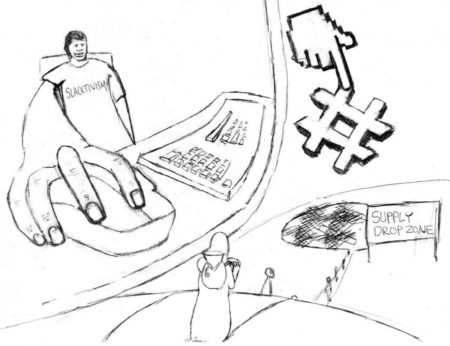It’s an older term, but it checks out. ‘Slacktivists.’ Those of us who used the Internet in the 1990s know it as a term for the kids who signed online petitions and then…did nothing. That’s it. They didn’t follow up or take part in any other political actions.
And then along came social media. Maybe slacktivists still sign online petitions. I can’t tell. At least we know they went all-in on the Facebook likes and shares.
Perhaps more recent slacktivism is more of a problem than the first versions. It’s probably about the same. But social media does cut to the core of what slacktivists do. It shows clearly how a great deal of online activism concerns the feelings of the people taking action.
Contrary to charity, slacktivism isn’t about serving others. And contrary to mutual aid, it’s not about social reproduction. Rather, it’s about short-term feelings and desires. And slacktivists are largely solipsistic. They stand apart from just about any form of collective action.
Slacktivists and the Left
So, lately the slacktivists have taken to criticizing people like AOC on pragmatic grounds. We saw the most recent example when AOC wore a ‘Tax the Rich’ dress to the Met Gala. Some online leftists – mostly using Twitter – derided AOC’s action as not useful, ineffective, and/or counter-productive.
In some cases, that’s fine. I’m not exactly a fan of the ‘Squad’ electoral approach. And some of the people who make the criticism do take part in other actions.
But mostly I see this criticism coming from people who perform a kind of social media leftism – often a Twitter leftism. The vast majority of their political work – if not all of it – comes in the form of lobbing criticism at people on Twitter.
Eroding Trust, Eroding Participation
Some time ago, I pointed out how social media erodes trust within activist groups.
This looks like the next step in that process. Not only does social media erode trust within activist groups. But slacktivists also use social media to erode trust and solidarity from outside. They prevent people from joining and taking part in actions. How? By giving people a kind of false boost of feelings at the illusion that they’ve done something useful.
Sitting around lobbing criticism on Twitter is a kind of non-activism that makes people think they’re doing activism.
